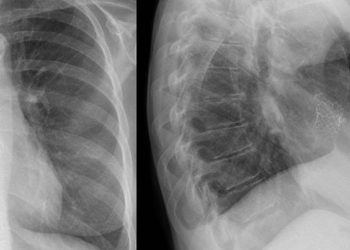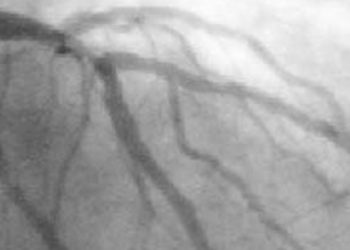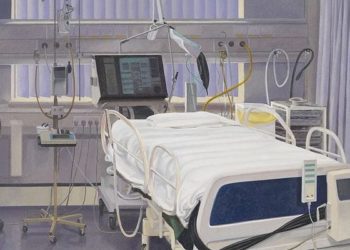Levosimendan not effective in reducing postoperative low cardiac output syndrome in select heart surgery patients
1. Compared with placebo, levosimendan did not reduce the need for prolonged catecholamine infusion, use of left ventricular assist device, or renal replacement therapy in patients with low ejection fraction undergoing coronary artery bypass grafting with cardiopulmonary bypass
Evidence Rating Level: 1 (Excellent)
Study Rundown: Mortality after coronary artery bypass grafting remains high in patients with existing left ventricular dysfunction (ejection fraction <40%). In this subset of patients, there is a higher risk of low cardiac output syndrome that increases the frequency of complications such as myocardial infarction, pulmonary impairment, or renal failure. While current management of low cardiac output syndrome includes use of inotropic agents or left ventricular assist devices, some studies have suggested that use of levosimendan, a calcium channel sensitizer, may help reduce occurrence of the syndrome. The present study is a randomized trial that investigated whether a 24-hour preoperative infusion of levosimendan in patients with left ventricular dysfunction undergoing CABG with bypass would reduce the risk of subsequent low cardiac output syndrome. Overall, 336 patients (mean age, 68 years; 16% women) were randomized to levosimendan (n = 167) and placebo (n = 168) groups. For their primary end points, the study looked at the need for catecholamines, mechanical assist devices, and renal replacement therapy among the two groups. No significant differences were found between levosimendan compared to placebo with regards to primary end points (52% of levosimendan group and 61% of placebo group reached primary end point; p = 0.15). Further, secondary end points such as in-hospital mortality, and adverse events such as atrial fibrillation or hypotension were not significantly different between the two groups.
Overall, the results of this study suggest levosimendan does not help reduce the risk of low cardiac output failure in patients with left ventricular dysfunction that are undergoing CABG with cardiopulmonary bypass. This is in agreement with 2 recent, large randomized control trials that reached similar conclusions. Limitations of this study include the use of a small levosimendan dose with no initial bolus that may have contributed to the minimal effect of levosimendan observed, as well as the timing of drug infusion which may have been close to myocardial injury, potentially reducing the protective effect of the drug.
Click to read the study, published in JAMA
Relevant Reading: Predictors of Low Cardiac Output Syndrome After Isolated Coronary Artery Bypass Surgery: Trends Over 20 Years
In-Depth [randomized clinical trial]: This trial was designed as a randomized, double-blind, 2-arm, parallel-group, placebo-controlled study within thirteen participating cardiac surgical centers. Eligible patients included those with reduced left ventricular ejection fraction (40% or lower), undergoing CABG surgery with cardiopulmonary bypass alone or combined with valve surgery. Patients were assigned in 1:1 fashion to either levosimendan or placebo. Primary end point included a composite of 3 elements reflecting low cardiac output syndrome. These included catecholamine infusion persisting beyond 48 hours after infusion of levosimendan, need for left ventricular assist device in the post-operative period, or the need for renal replacement therapy during the intensive care unit stay. Secondary end-points included in-hospital mortality, number of days with mechanical assist device, and number of days with renal replacement therapy among others (other secondary endpoints included in text). Total of 336 patients were randomized between June 2013 until May 2015, and followed up over 6 months with 333 patients completing the trial. Baseline characteristics were similar across the levosimendan and placebo groups. Primary end point occurred in 87 levosimendan patients (52%) and 101 placebo patients (61%) (p = 0.15). The three primary end points were not affected by levosimendan administration, and no significant difference was found in any of the secondary endpoints. Furthermore, there was no significant difference in the incidence of adverse events or serious adverse events among the 2 groups.
Image: PD
©2017 2 Minute Medicine, Inc. All rights reserved. No works may be reproduced without expressed written consent from 2 Minute Medicine, Inc. Inquire about licensing here. No article should be construed as medical advice and is not intended as such by the authors or by 2 Minute Medicine, Inc.







